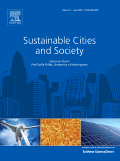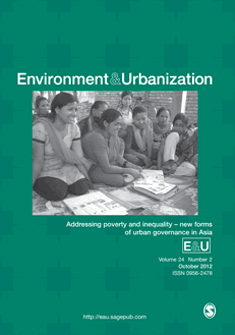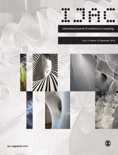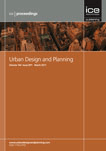
International Journal of Built Environment and Sustainability
Scope & Guideline
Empowering Researchers to Build a Sustainable Future
Introduction
Aims and Scopes
- Sustainable Architecture and Design:
Research on sustainable architectural practices, including passive design strategies, biomimicry, and innovative materials that enhance energy efficiency and environmental impact. - Urban Planning and Development:
Studies that address urban sustainability, including the effects of urbanization on local ecosystems, community engagement in planning processes, and strategies for resilient urban development. - Construction Management and Technologies:
Exploration of advanced construction methodologies such as Industrialized Building Systems (IBS), Building Information Modeling (BIM), and the integration of artificial intelligence in construction management. - Climate Adaptation Strategies:
Research focused on adapting built environments to climate change, including assessments of building performance under varying climate conditions and the implementation of green infrastructure. - Sociocultural Dimensions of Built Environments:
Investigations into how built environments influence social behaviors, cultural practices, and community well-being, particularly in the context of marginalized or diverse populations.
Trending and Emerging
- Integration of Artificial Intelligence:
Recent publications emphasize the role of AI in enhancing sustainability in architecture and construction, showcasing its potential to optimize design processes and resource management. - Climate Resilience and Adaptation:
There is a noticeable increase in research focusing on climate resilience, including strategies for adapting buildings and urban areas to the impacts of climate change, reflecting a pressing global concern. - Green Infrastructure and Urban Ecology:
Emerging studies explore the implementation of green infrastructure as a means to enhance urban sustainability, improve public health, and foster biodiversity in urban settings. - Social Sustainability and Community Engagement:
A growing body of work highlights the importance of social sustainability, examining how urban design and architecture can support community well-being and promote inclusive practices. - Health and Well-being in Built Environments:
Research increasingly addresses the connections between built environments and health outcomes, particularly in the context of post-pandemic recovery and the design of supportive public spaces.
Declining or Waning
- Traditional Construction Practices:
Research related to conventional building methods has seen a decline as the focus shifts towards innovative and sustainable construction techniques that align with modern sustainability goals. - Post-Occupancy Evaluations:
While important, studies specifically evaluating post-occupancy conditions of buildings have decreased, as more emphasis is placed on upfront design strategies and sustainability metrics during the planning phase. - Historical Architecture Studies:
Papers focusing solely on historical architecture without a sustainability angle have become less frequent, indicating a trend towards integrating historical insights with contemporary sustainability practices. - General Environmental Impact Assessments:
Broad assessments lacking specific applications or innovative frameworks have waned, as there is a growing preference for targeted studies that provide actionable insights for specific built environment challenges.
Similar Journals

Sustainable Cities and Society
Innovating pathways to resilient and equitable cities.Sustainable Cities and Society is a premier journal published by Elsevier, focusing on the interdisciplinary nexus of urban development, sustainability, and environmental challenges. With an impressive impact factor and recognized as a Q1 journal in multiple categories—including Civil and Structural Engineering, Geography, Planning and Development, Renewable Energy, Sustainability and the Environment, and Transportation—this journal stands out as a crucial platform for researchers, practitioners, and policymakers. The journal has been dedicated to advancing knowledge since its inception in 2011 and continues to be a vital resource for innovative solutions that foster sustainable urban environments. By featuring high-quality research, case studies, and reviews, it serves as an essential reference point for contemporary issues in urban planning and sustainable development. The journal's commitment to excellence is evident in its rankings, and it remains a go-to source for those invested in creating cities that are resilient, eco-friendly, and socially equitable.

Archnet-IJAR International Journal of Architectural Research
Fostering collaboration in the global architectural community.Archnet-IJAR International Journal of Architectural Research serves as an esteemed platform within the field of architecture and urban studies, published by Emerald Group Publishing Ltd. With an impressive impact reflected through its Q1 category rankings in both Architecture and Urban Studies, this journal highlights cutting-edge research and innovative practices spanning diverse architectural disciplines. The journal focuses on facilitating interdisciplinary dialogues, making it a vital resource for researchers, students, and professionals keen on advancing their understanding of architectural theories and urban design. With its commitment to quality, evidenced by high scores in various Scopus rankings, including a rank of 9th in Visual Arts and Performing Arts, Archnet-IJAR aims to publish work that not only challenges conventional boundaries but also enriches practical applications in the built environment. Its open-access model ensures wider dissemination of knowledge, fostering collaboration and growth within the international architectural community.

Frontiers in Built Environment
Fostering collaboration for resilient built environments.Frontiers in Built Environment, published by FRONTIERS MEDIA SA, is a highly regarded open-access journal that has established itself as a significant platform for cutting-edge research in the fields of building and construction, geography, planning and development, and urban studies. Since its inception in 2015, this journal has embraced a commitment to disseminating high-quality, peer-reviewed research, allowing researchers, professionals, and students to access pivotal findings and insights without financial barriers. With an impressive 2023 impact factor, it ranks in the Q1 tier for Urban Studies and is positioned within the Q2 tier for both Building and Construction and Geography, Planning and Development, demonstrating its influence and relevance in evolving urban and environmental challenges. Its rigorous indexing, exemplified by a strong Scopus ranking, reflects its contribution to the advancement of knowledge in these critical areas. With a clear dedication to fostering innovation and collaboration within the built environment sector, Frontiers in Built Environment is essential reading for those engaged in shaping sustainable urban futures.

Prostor
Navigating the Complexities of Urban EnvironmentsProstor is an esteemed scholarly journal published by the University of Zagreb, Faculty of Architecture, dedicated to advancing knowledge in the fields of architecture, urban planning, and spatial studies. Since transitioning to an Open Access model in 2006, Prostor has made significant strides in providing unrestricted access to its contents, fostering a vibrant community of researchers, practitioners, and students interested in contemporary issues surrounding the built environment and social space. The journal's commitment to quality is reflected in its impressive rank within Scopus, particularly in the Arts and Humanities category (64th percentile) and within Engineering (Architecture) at the 49th percentile. Covering a broad array of interdisciplinary topics, Prostor serves as a vital platform for disseminating innovative research and fostering dialogue among professionals while engaging with practical and theoretical explorations of spatial design. With coverage spanning over two decades, Prostor remains a crucial resource for anyone seeking to navigate the complexities of architecture and urban studies.

ENVIRONMENT AND URBANIZATION
Leading the dialogue on urbanization and ecological balance.Environment and Urbanization is a leading interdisciplinary journal published by SAGE Publications Ltd, dedicated to advancing knowledge in the fields of Environmental Science and Urban Studies. With a strong focus on the interactions between urban environments and ecological systems, this journal has established itself as a pivotal resource for researchers, professionals, and students interested in sustainable urban development and environmental management. Since its inception in 1989, Environment and Urbanization has continually provided high-quality, peer-reviewed articles that foster a deeper understanding of contemporary urban challenges, making it a highly cited publication with an impressive impact factor. As evidenced by its Q1 ranking in both Environmental Science (miscellaneous) and Urban Studies for 2023, the journal stands at the forefront of research, boasting notable Scopus rankings in its fields. By remaining committed to publishing cutting-edge research, the journal aims to influence policy and practice across the globe, ultimately aiding in the creation of more resilient and livable urban areas.

International Journal of Architectural Computing
Exploring the Future of Architecture with Computational Insight.International Journal of Architectural Computing, published by SAGE Publications Ltd, serves as a vital platform for researchers, professionals, and students engaged in the intricate intersections of architecture, computing, and design. With an ISSN of 1478-0771 and an E-ISSN of 2048-3988, this esteemed journal has maintained a commendable standing in the academic community, reflected in its categorization within the top Quartiles (Q2) for both Building and Construction and Computer Graphics and Computer-Aided Design in 2023. The journal operates out of the United Kingdom and showcases innovative research that revolutionizes architectural practices through computational advancements, contributing meaningfully to global discourse. While the journal does not currently follow an Open Access model, it continues to uphold high academic standards, as indicated by its Scopus rankings, including a notable rank of #93 out of 223 in Engineering - Building and Construction. The journal encompasses a wide range of topics, inviting submissions that address contemporary challenges and methodologies in architectural computing, making it essential reading for those passionate about bridging the gap between design and technology.

Open House International
Illuminating Contemporary Challenges in Urban DevelopmentOpen House International is a distinguished peer-reviewed journal that serves as a vital resource in the fields of Architecture, Urban Studies, and Geography, Planning and Development. Published by Emerald Group Publishing Ltd, the journal circulates valuable insights and research findings that address contemporary challenges and innovations within urban environments. With an impressive 2023 Scopus ranking that places it in the Q2 category in Architecture and Q3 in Geography, Planning and Development, the journal is recognized for contributing significantly to scholarly discourse. Although it follows a traditional access model, the journal's commitment to curating high-quality content remains paramount. As it transitions into a new decade of publishing, from 2007 to 2024, Open House International continues to attract submissions that push the boundaries of knowledge in urban and architectural studies, engaging researchers, professionals, and students alike in the vibrant dialogue on the built environment.

ICONARP International Journal of Architecture and Planning
Fostering global collaboration in architectural scholarship.ICONARP International Journal of Architecture and Planning is an esteemed open-access publication that serves as a pivotal platform for fostering innovative research and discussions in the fields of architecture and urban design. Published by KONYA TECHNICAL UNIVERSITY, FACULTY OF ARCHITECTURE & DESIGN, this journal has been committed to the dissemination of high-quality academic work since 2013, promoting accessibility and global collaboration among researchers, professionals, and students. With its rigorous peer-review process and a focus on contemporary architectural and planning challenges, ICONARP seeks to contribute significantly to scholarly discourse and practical applications within the built environment. The journal is indexed in various scientific databases, enhancing its visibility and impact in the academic community. By appealing to a diverse audience, ICONARP encourages interdisciplinary studies and innovative solutions that address the complexities of modern architecture and urban living.

Architecture Civil Engineering Environment
Empowering Sustainable Solutions Across DisciplinesArchitecture Civil Engineering Environment, published by Silesian University of Technology, is an esteemed open-access journal dedicated to advancing research and scholarship in the fields of architecture, civil engineering, and environmental science. With its ISSN 1899-0142 and E-ISSN 2720-6947, the journal facilitates the dissemination of innovative practices and methodologies to an international audience. Since transitioning to open access in 2016, it has fostered a collaborative environment that empowers researchers and professionals to share their work freely, thus enhancing the visibility and impact of contemporary studies. The journal emphasizes interdisciplinary research, aiming to bridge gaps between architectural design, civil infrastructure development, and environmental sustainability. By publishing high-quality peer-reviewed articles, Architecture Civil Engineering Environment plays a crucial role in shaping the future of sustainable practices within these intertwined disciplines, making it an essential resource for scholars, practitioners, and students alike.

Proceedings of the Institution of Civil Engineers-Urban Design and Planning
Transforming Knowledge into Urban SolutionsProceedings of the Institution of Civil Engineers-Urban Design and Planning is a leading scholarly journal published by EMERALD GROUP PUBLISHING LTD, dedicated to advancing knowledge and innovation in the fields of urban design and planning. With an ISSN of 1755-0793 and E-ISSN 1755-0807, this journal serves as a vital platform for researchers, professionals, and students to disseminate impactful studies and findings. It boasts impressive rankings, including Q1 in Architecture and notable positions in Civil and Structural Engineering and Urban Studies, underscoring its significance in the academic community. The journal's scope encompasses a diverse array of topics relevant to urban environments, encouraging interdisciplinary dialogue and exploration. Although it operates under traditional access, its contributions are invaluable, reflecting the latest developments and challenges within urban planning practices. Published regularly since 2009, the Proceedings of the Institution of Civil Engineers-Urban Design and Planning is vital for those seeking to enhance their understanding of sustainable urban development and design methodologies, making it a critical resource in its fields of study.